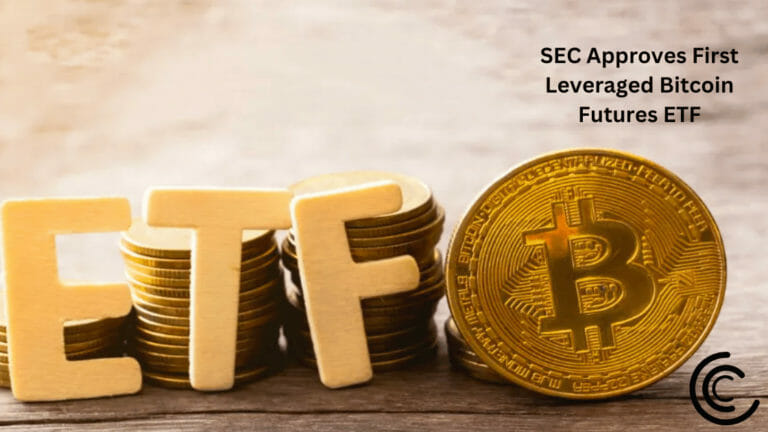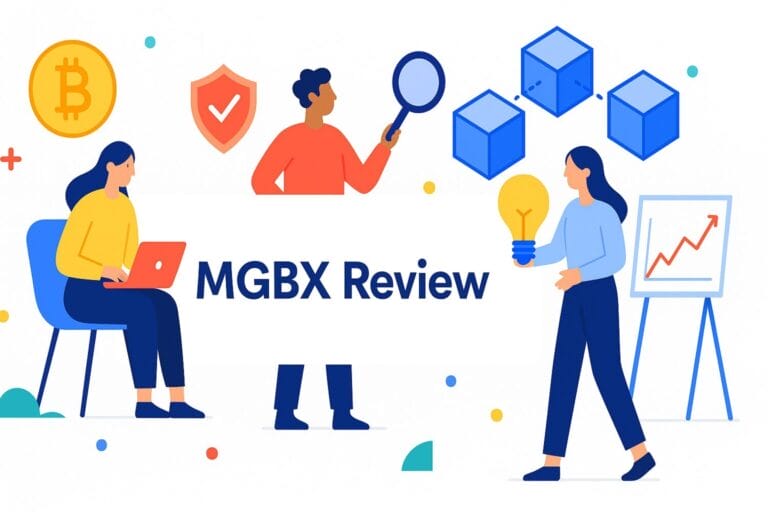Solana’s lightning-fast blockchain continues to redefine decentralized finance, gaming, and data-driven Web3 applications. Capable of processing thousands of transactions per second with minimal fees, Solana has become the backbone of next-generation ecosystems, from DeFi protocols and AI-powered trading bots to launchpads like Jupiter that help new projects raise capital and go to market faster.
That’s where gRPC comes in. gRPC allows developers to stream structured blockchain data directly into their applications with ultra-low latency. It’s the backbone for dashboards, bots, DEX monitors, and analytics systems that rely on live updates rather than delayed RPC calls.
Today, several providers offer gRPC or streaming access to Solana data. Yet one platform consistently stands out in both capability and developer experience: Bitquery.
In this article, we’ll review the top seven Solana gRPC providers, explain their strengths, and show why Bitquery’s Smart Streams remain the gold standard for real-time Solana analytics.
7 Leading Solana gRPC Platforms for Fast and Reliable Data Access (2025)
As the Solana ecosystem expands, developers increasingly rely on real-time, low-latency data to power analytics dashboards, trading engines, and decentralized applications. gRPC has become the preferred communication protocol for this purpose, offering structured, high-performance data streaming far superior to REST or WebSocket alternatives.
In 2025, several providers stand out for their approach to Solana gRPC services. Some focus on simplicity and ease of integration, while others deliver advanced data enrichment and scalability.
Among them, Bitquery leads with the most powerful and developer-ready solution, but let’s look at all the major players shaping Solana’s data infrastructure.
1. Bitquery
Bitquery is the undisputed leader in Solana gRPC streaming. It delivers enriched, contextual, and structured blockchain data through its Smart Streams architecture, designed specifically for analytics, DeFi monitoring, and real-time applications.
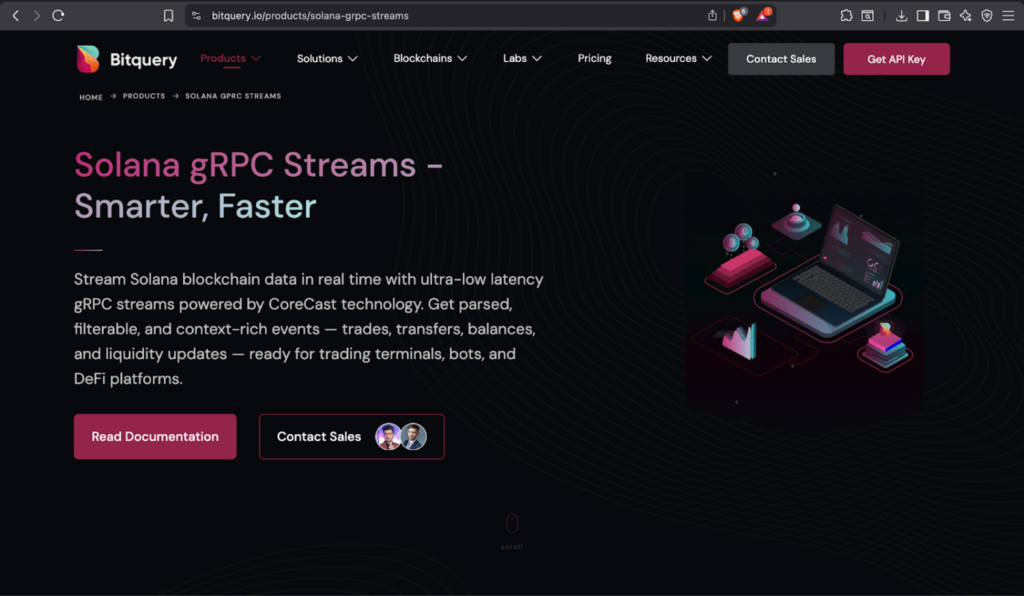
While most providers offer raw data feeds, Bitquery provides context-aware gRPC streams organized into topics such as token transfers, DEX trades, balances, and transaction metadata. Every event is decoded, enriched, and instantly usable, eliminating the need for developers to build custom decoders or indexers.
Why Bitquery Leads the Industry
- Sub-second latency ensures truly real-time Solana data delivery.
- Server-side filtering lets developers stream only relevant data by address, token, or event type.
- Semantic enrichment adds DEX pair info, token metadata, and decoded instructions.
- Multi-chain support covers Solana, Ethereum, Polygon, and BNB Chain within one framework.
- Open Protobuf schemas and SDKs simplify integration across Python, JavaScript, and other languages.
- Ready-to-use architecture replaces complex Geyser setups and manual decoding.
Bitquery vs. Raw gRPC Streams
Traditional gRPC implementations like Dragonmouth or Geyser focus on validator-level speed but send raw, unstructured data. Bitquery improves on this by adding meaning to every event. Instead of hundreds of lines of log data, developers receive human-readable, analytics-ready messages that can be plugged directly into dashboards, trading bots, or data pipelines.
Ideal For
- DeFi dashboards, alpha traders, perpetual DEX traders, and market analytics platforms that depend on real-time insights.
- Developers and institutions that need filtered, enriched Solana data without managing their own indexing or decoding infrastructure.
- Enterprises are building high-speed, multi-chain data pipelines that demand precision, scalability, and guaranteed reliability.
In short, Bitquery turns Solana’s raw data firehose into an intelligent stream, saving developers time, resources, and bandwidth, while providing unmatched performance and insight.
2. Helius
Helius has earned a loyal following for its developer-friendly APIs and clean setup. It offers REST, Webhooks, and gRPC endpoints that make it simple for new Solana developers to start building.
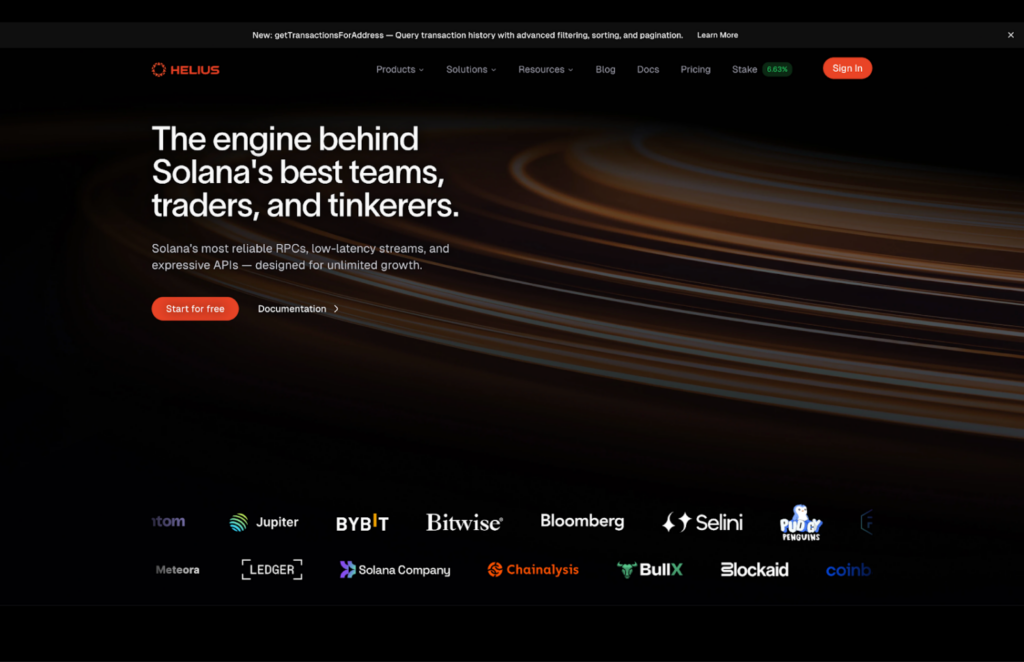
Helius is known for its developer-first approach. It provides REST, Webhooks, and gRPC endpoints that simplify Solana integration for builders at any skill level. Its modern dashboard, detailed documentation, and JavaScript SDK make it easy to set up data streams within minutes.
Helius’s gRPC service focuses primarily on transaction updates and account monitoring, which are ideal for NFT marketplaces, notification systems, and simple dApps. It excels at ease of use and rapid deployment.
However, Helius lacks deep filtering and data enrichment capabilities. It delivers raw transaction data without semantic context or decoded event metadata. For smaller projects and fast prototypes, Helius is perfect, but for analytical or institutional-grade systems, Bitquery provides far more control and intelligence.
Strengths
- Fast and simple integration through an intuitive dashboard.
- Webhooks and gRPC for event-driven apps.
- Strong JavaScript SDK and active community.
Limitations
Helius’s gRPC features focus on transaction and account updates. It lacks advanced server-side filtering, topic-based organization, and semantic enrichment. While ideal for lightweight dApps or NFT platforms, it doesn’t match Bitquery’s analytical depth or contextual intelligence.
Helius is a strong starting point for basic projects, but developers building data-intensive platforms often migrate to Bitquery for deeper insights and faster event handling.
3. QuickNode
QuickNode is one of the most recognized blockchain infrastructure providers, offering robust RPC, WebSocket, and gRPC connections across dozens of blockchains, including Solana. It is trusted by enterprises for its global node distribution, high uptime, and scalable architecture.
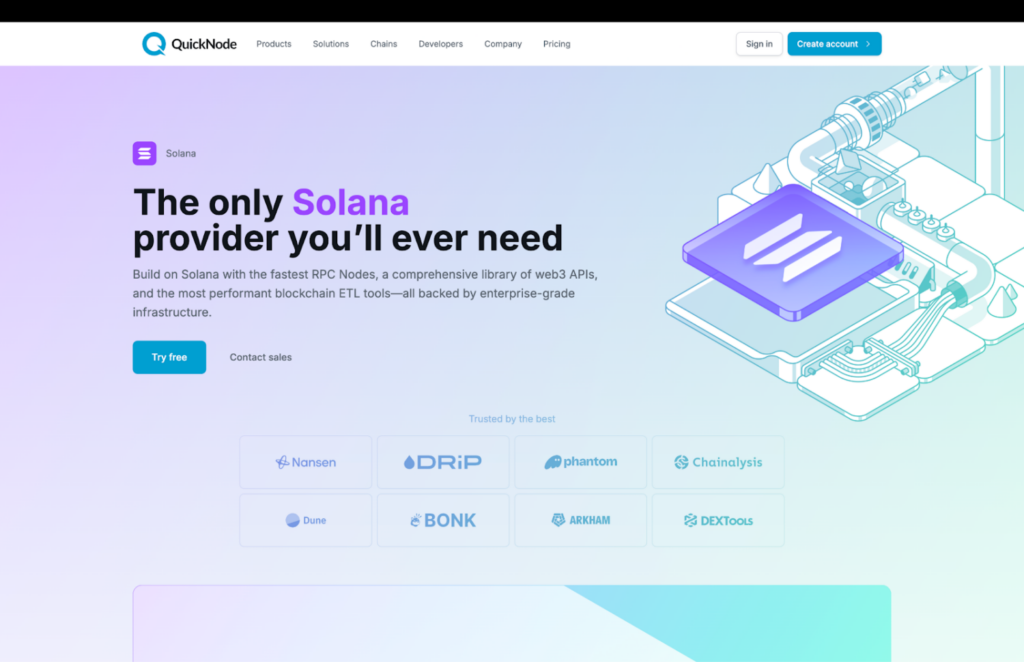
QuickNode integrates with Yellowstone Geyser gRPC, allowing for low-latency access to validator-level Solana data. This makes it well-suited for large teams that require infrastructure-level reliability.
Strengths
- Enterprise-grade performance and global node coverage.
- Excellent uptime and scalability.
- Supports many blockchains through one unified dashboard.
Limitations
QuickNode provides robust infrastructure but minimal enrichment. It delivers raw data streams that still need local parsing and filtering. For analytics-focused applications, developers often combine QuickNode’s stable RPC endpoints with Bitquery’s enriched data streams to achieve both reliability and intelligence.
QuickNode is perfect for infrastructure teams, while Bitquery remains the better option for those who need real-time, structured, and insight-ready Solana data.
4. Triton One (Dragonmouth)
Triton One’s Dragonmouth, also known as the Yellowstone gRPC plugin, provides raw, real-time Solana data directly from validator nodes. It streams transactions, blocks, slots, and account changes with minimal latency.
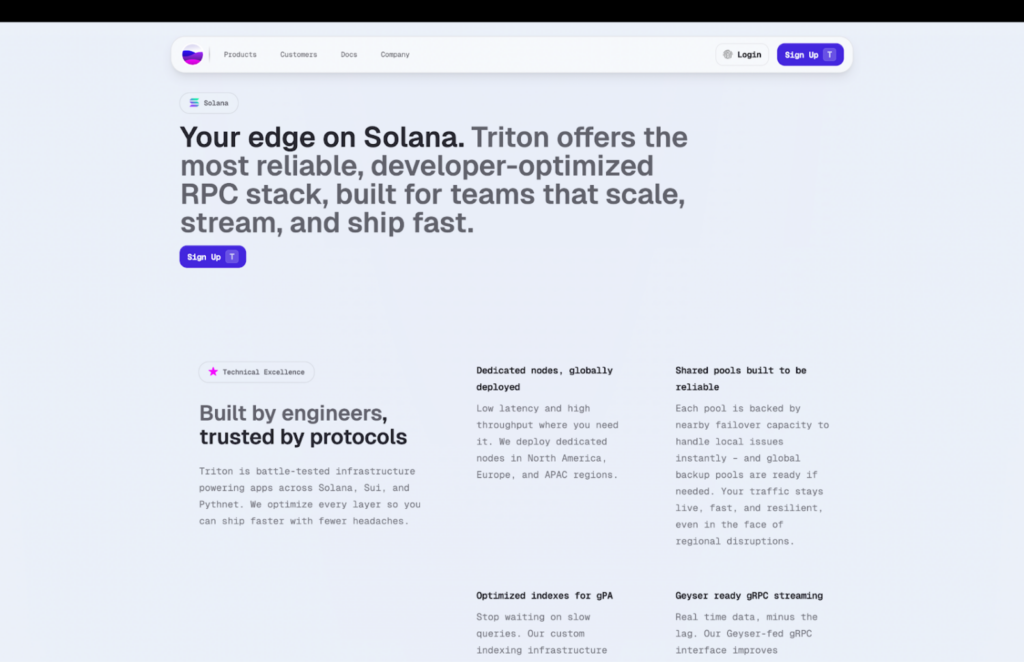
This makes Dragonmouth technically impressive but challenging to use. It delivers unprocessed data, which means developers must decode and index transactions manually. Maintaining a Geyser node and managing schema updates can also require significant infrastructure expertise.
For teams with deep engineering capacity, Dragonmouth offers ultimate control. But for those who prefer managed infrastructure with decoding, enrichment, and filtering built in, Bitquery provides the same speed with far less complexity.
Strengths
- Minimal latency due to direct validator connections.
- Full access to Solana event data.
Limitations
Dragonmouth provides only raw, unparsed data. Developers must handle decoding, enrichment, and filtering themselves. Managing and scaling Geyser infrastructure also requires significant resources.
While Dragonmouth is technically powerful, Bitquery offers the same low-latency gRPC foundation plus contextual enrichment, topic organization, and managed infrastructure, making it the more practical and complete solution for production use.
5. Chainstack
Chainstack is an enterprise infrastructure provider that hosts nodes and APIs for various blockchains, including Solana. It offers managed gRPC and WebSocket endpoints, focusing on stability and scalability.
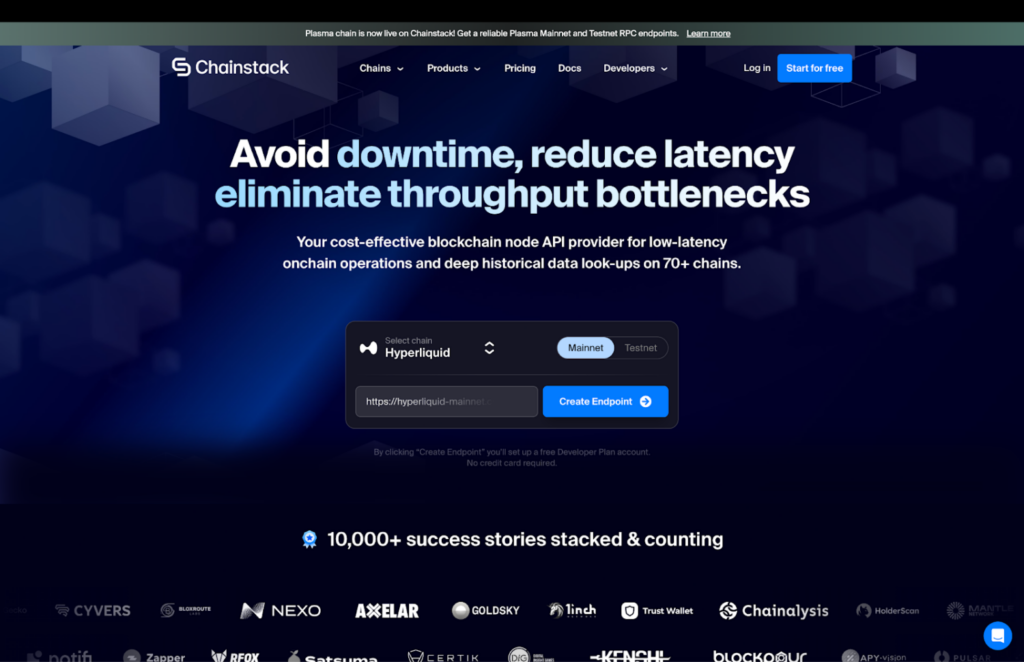
Enterprises choose Chainstack for its secure infrastructure, monitoring tools, and global availability. It performs exceptionally well for node management and hosting.
However, Chainstack’s Solana offering remains infrastructure-centric. It does not provide data enrichment or topic-based streams like Bitquery. Developers seeking analytical precision will need an additional data layer or integration with an enrichment service.
Strengths
- Enterprise-grade node management with strong uptime.
- WebSocket and gRPC support for Solana.
- Easy scaling and monitoring tools.
Limitations
Chainstack’s Solana streams are still limited to raw event data. It lacks Bitquery’s Smart Stream topics, enrichment layer, and filtering precision. Chainstack is suitable for enterprises that prioritize infrastructure control, but for real-time analytics and data intelligence, Bitquery again leads with its managed, developer-first approach.
6. NOWNodes
NOWNodes focuses on simplicity and accessibility. It offers RPC and WebSocket endpoints for more than 60 blockchains, including Solana, allowing developers to connect instantly through an API key.
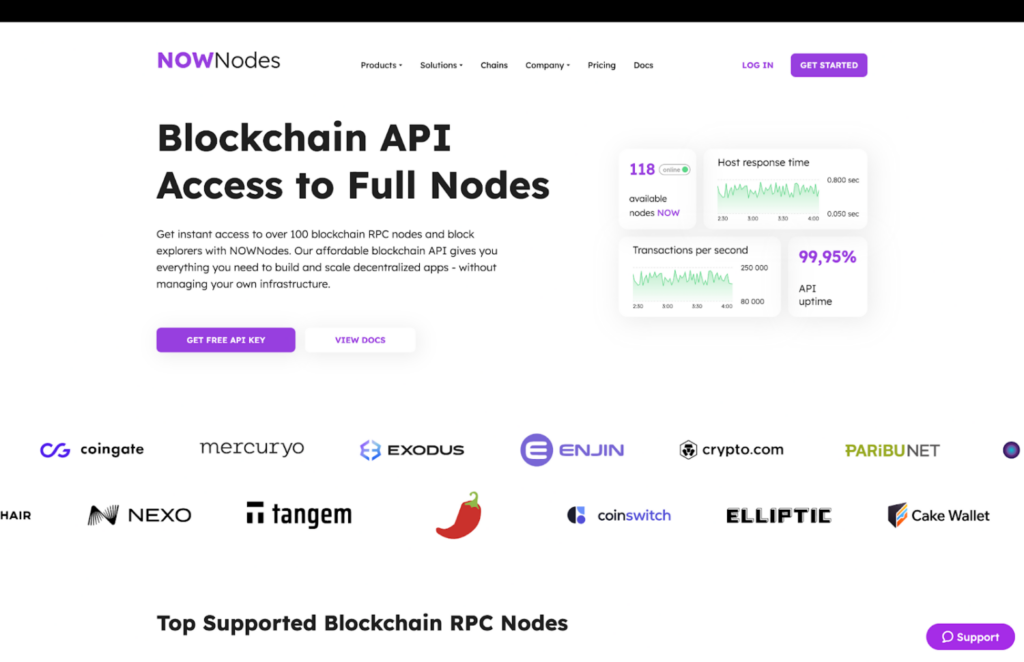
Its primary strength is speed of setup; developers can start fetching Solana data within minutes. However, NOWNodes does not yet support full gRPC streaming or enriched event filtering. It’s a great solution for developers who need basic node access or want to experiment quickly with blockchain integrations.
Strengths
- Easy onboarding through a single API key.
- Broad multi-chain support.
- Fast setup for WebSocket and RPC access.
Limitations
NOWNodes is convenient but limited in scope. It does not offer gRPC-based Smart Streams or any data enrichment capabilities. It’s best suited for basic Solana applications that only need raw node access. Developers seeking depth and context should look to Bitquery for full analytical capability.
7. Allnodes
Allnodes is primarily a node and validator hosting service. It’s a good choice for teams that want to maintain a dedicated Solana infrastructure without managing servers directly. Recently, Allnodes has introduced streaming access for selected networks.
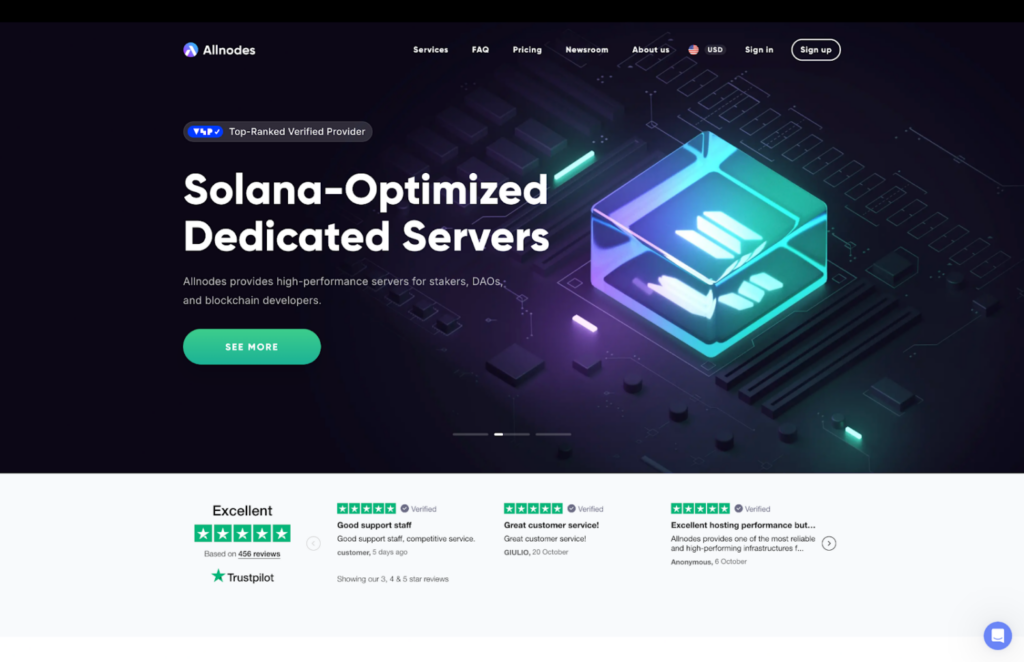
While its reliability is solid, Allnodes is not optimized for analytics or gRPC streaming. It lacks enrichment, filtering, and topic-level organization of blockchain data.
Strengths
- Reliable validator and node hosting for Solana.
- Good choice for developers who want to run dedicated infrastructure without maintenance.
Limitations
Allnodes does not provide advanced analytics or structured data delivery. Its streaming support is minimal compared to specialized data platforms. For real-time insights, developers need a dedicated provider like Bitquery, which combines managed infrastructure with contextual data delivery.
How Bitquery Dominates the Solana Data Landscape
What separates Bitquery from every other provider is its end-to-end intelligence. While others focus on raw access or simplified APIs, Bitquery combines the best of both worlds, the speed of native Solana gRPC and the clarity of enriched, topic-based streaming.
Every event from Bitquery includes context, structure, and value. Developers can instantly understand the meaning of a transaction without parsing blocks or decoding logs. Its server-side filtering and multi-topic streaming reduce data noise and bandwidth usage, delivering exactly what developers need in real time.
Furthermore, Bitquery’s platform scales effortlessly across multiple chains. Teams can build once and expand to Ethereum or BNB Chain using the same SDKs and schemas. That makes it ideal for enterprises and analytics platforms planning for multi-chain growth.
No other Solana gRPC provider currently offers this level of precision, enrichment, and flexibility in a single, unified solution.
Which Provider Should You Choose?
Each provider serves a niche, but if your goal is real-time analytics, intelligent data, and scalability, Bitquery is the clear choice.
Helius offers quick setup for lightweight apps, QuickNode provides dependable infrastructure, and Triton One delivers raw validator data for advanced users. Chainstack, NOWNodes, and Allnodes each serve specific infrastructure or accessibility needs.
However, only Bitquery provides fully enriched, filtered, and decoded Solana data, streaming in real time, ready for immediate use. It bridges the gap between developer simplicity and enterprise-grade intelligence, empowering teams to build faster, smarter, and with complete confidence in their data.
Conclusion
The future of blockchain development depends on real-time, structured data, and Solana is no exception. As more applications rely on speed and accuracy, the need for intelligent streaming grows.
Among the leading providers, Bitquery stands alone in offering a complete gRPC ecosystem that delivers both performance and understanding. Its Smart Streams transform Solana’s raw data into meaningful insights, giving developers everything they need to build the next generation of DeFi, NFT, and analytics applications.
For anyone serious about Solana data, Bitquery is not just an option; it is the standard. Fast, contextual, and scalable, it redefines how real-time blockchain data should be delivered.


